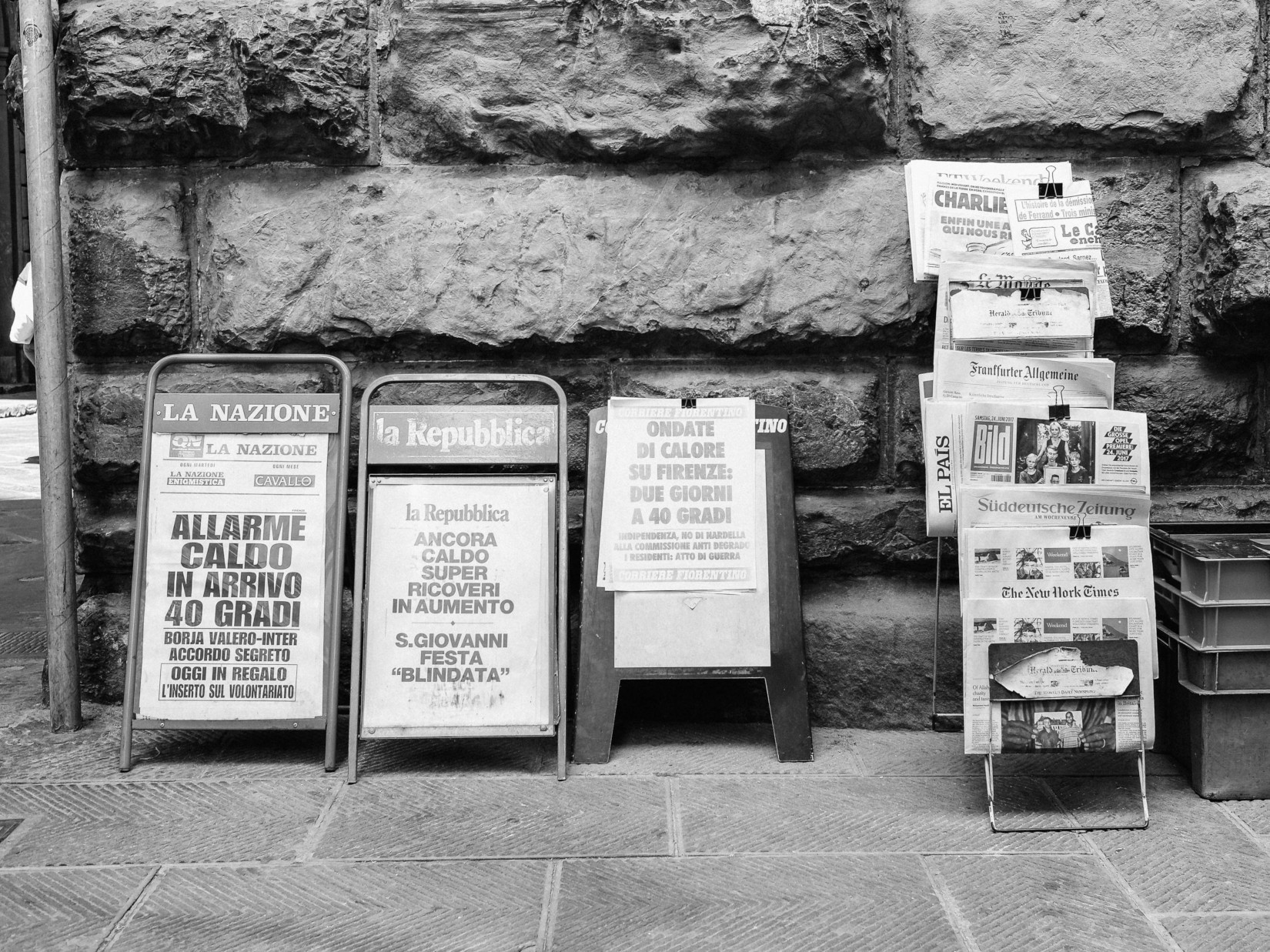
I live in a fast-paced world. News from all over the planet reach me within minutes, even seconds. This creates a huge, violent stream of information, trying to get into my mind.
Meanwhile I have less and less time on my hands and can only hastily process all the information I consume. Too often I catch myself quickly scrolling through the news feed, only reading the headlines of articles, the excerpt at best.
I have to admit it: I depend on the news articles I read to be truthful, as I don’t have time to verify them on my own. I am at the mercy of journalists to tell me the stories the way they really happened.
At the same time journalists desperately try to get me to read their articles. They have to get clicks on their websites in order to survive, as printed newspapers are slowly dying.
As a result my news feed is flooded with sensational headlines and click-bait articles. Scandals are made to appear bigger than they really are or simply made up from thin air. Often the title of an article contradicts the content itself or is massively exaggerated.
Recent examples of this trend are the allegations around the YouTube creator PewDiePie, who is regularly accused by several news outlets to be a white supremacist, which – if you know his videos and understand his type of humor – is just absurd. Sure, there are some edgy jokes here and there, but they are exactly this: Jokes and satire. Any viewer knows and understands this.
I really hate the term fake news, as it’s often used as a lazy excuse to ignore inconvenient facts, but reading bad researched articles like those around PewDiePie make me question the credibility of some news organizations and it makes me sad to see, how shortsighted some trade away credibility for clicks.
Another example would be the case of Class Relotius, a journalist who wrote for Der Spiegel, a prominent German newspaper. Relotius deliberately made up a number of articles. This massively hurts the trustworthiness of the press, even though I think (and hope) that Der Spiegel itself is an otherwise reliable newspaper.
As I wrote earlier, I want to be able to depend and rely on the news.
I don’t want to live in a world where people screaming “Fake News” are those who speak the truth.
So what solutions are there to fix these issues?
Journalism needs financing.
Most sites greet you with popups that demand you to disable your ad-blocker to read their articles. I know that this is not an option for me.
Blocking advertisements is not – as often depicted by the advertising industry – simply a way to make my life more comfortable, it is actually a security measurement. Ads spy on the user and can even be used to execute malicious code. As a proponent of the free software movement I believe that its my right to decide which software is run on my machines. Therefore I am persuaded that it’s my right to decide to disable ads.
In Germany we have the “Rundfunkbeitrag”, a model for financing public service broadcasters in Germany. Some people say that it is unfair to be forced to pay for something that you don’t necessarily consume. While I see their point (some people don’t own a TV or radio, why should they pay?), I think that it is more important to have independent journalism. In the end that’s the whole reason behind this blog post.
I am not sure if subscribing to a news outlet in order to be able to read their articles is the right way to solve the issue. Sure, this is the way it has been in times prior to the internet (you bought the news paper), but things changed. My biggest issue with the subscription model is that I could only subscribe to a limited number of news sites at once. That however makes me dependent on those sources. If I’d want to read an article of another site I’d need to pay for that again.
One approach would be a unified subscription which would give you access to a variety of news sites. That way I wouldn’t be bound to a single source and the fee would ensure the editorial independence of the journalists. This idea is however not yet well thought out.
Maybe we need a Rundfunkbeitrag for newspapers. In the end the only difference between news on TV and newspapers is the medium that transports the content. Both are however created by journalists that are in need of financing to stay independent.
In the meantime I will consider, whether I can afford to subscribe to a news site and if so, which would be the right choice for me. Possible candidates are Der Spiegel (yes, I’d give them another chance and yes, no https :/) and Netzpolitik.org who solely rely on donations at the moment.

